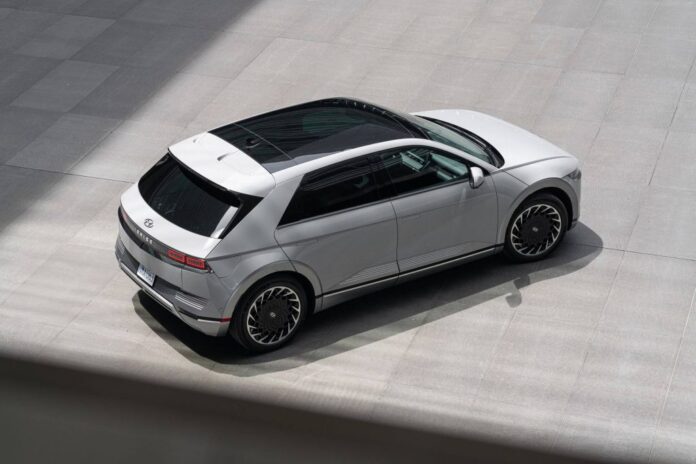“Hyundai Motor Group, the world’s third-largest automaker, announced plans to install Battery Management Systems (BMS) on all their electric vehicles (EVs) to mitigate the risk of fires, a move aimed at restoring consumer confidence following a recent fire incident involving a Mercedes-Benz electric sedan.
The South Korean automotive giants, Hyundai Motor Co. and Kia Corp., unveiled their initiative on Thursday, emphasizing that the BMS technology will be applied to all upcoming EV models. The system is designed to detect battery abnormalities and promptly notify vehicle owners and the carmakers’ support centers, helping to prevent potential fire hazards associated with overcharging and short circuits.
Preventing Overcharging and Short Circuits
The BMS will monitor key battery metrics, including voltage deviation, insulation resistance, temperature, and current changes, to detect abnormalities that could lead to fires. Specifically, the system is equipped to identify overcharging—a leading cause of EV fires—and the more complex micro short circuits. Micro short circuits occur when lithium metal precipitates on a battery’s negative electrode and subsequently reaches the positive electrode, a failure mode that can lead to thermal runaway and potentially catastrophic fires.
Hyundai and Kia’s BMS will notify vehicle owners via text messages and other communication methods if a risk is detected. Simultaneously, data on these abnormalities will be transmitted to the companies’ remote support centers for immediate analysis and intervention.
“The current BMS can prevent fires caused by overcharging in advance,” a Hyundai Motor Group official stated. “With advancements, the new technology will also be able to prevent battery fires caused by short circuits.”
This proactive approach comes as some local South Korean authorities, such as the Seoul Metropolitan Government, consider regulations that would limit EV charging to 90% to reduce fire risks. However, Hyundai and Kia aim to reassure customers by providing a technological solution that addresses these safety concerns directly.
Future Upgrades and AI Integration
Hyundai and Kia also plan to enhance the BMS with artificial intelligence (AI) and cloud technologies, enabling even more sophisticated monitoring and safety features. The companies are developing an onboard cloud-integrated system that will collect and analyze battery data in real-time, providing a continuous feedback loop for safety management. This system is expected to improve the accuracy and timeliness of fire risk detection, further protecting EV owners.
Addressing Safety Concerns Amid EV Industry Challenges
The decision to implement BMS across all EVs is a response to growing safety concerns, particularly following an incident earlier this month where a Mercedes-Benz electric sedan, reportedly equipped with batteries from Chinese manufacturer Farasis Energy Inc., caught fire in a parking garage in Incheon. The blaze took over eight hours to extinguish and damaged 87 other vehicles, significantly heightening public fears about EV safety.
In response, Hyundai and Kia have been transparent about their battery suppliers and have offered indefinite safety inspections for EVs in South Korea. These measures are part of a broader effort by the automotive industry to address the safety and reliability of electric vehicles, especially as consumer trust has been shaken by incidents like the one in Incheon.”
-Room, P. (2024, August 16). Hyundai and Kia to implement battery management systems on all electric vehicles to prevent fires. AutoTech News. https://autotech.news/hyundai-and-kia-to-implement-battery-management-systems-on-all-electric-vehicles/
This is a smart business move on Hyundai’s part because they will now be associated with safety in the mind of consumers. I have no doubt that other companies that manufacture electric vehicles will follow suit and implement BMS systems, so they may not be on top for long. Providing indefinite safety inspections is also a good call. I find it interesting that there wasn’t already a system like this in place, although it’s possible that batteries never overheated to the point of combustion during safety testing. From this article it’s clear that it’s crucial to push products to their absolute limits when testing them so that designers can adequately design around the problems that arise before the product is released. If there had been more testing to see how long the battery could run, how hot it could get, and how they behave after sustained use then maybe the BMS system would have already been a part of the car upon its release.
While I brainstorm ideas for how the front trunk space of a electric Honda truck/SUV can be improved, I have to keep safety in mind at all times as well as the limits of my design. I should propose a plan for testing the design for prolonged use.




